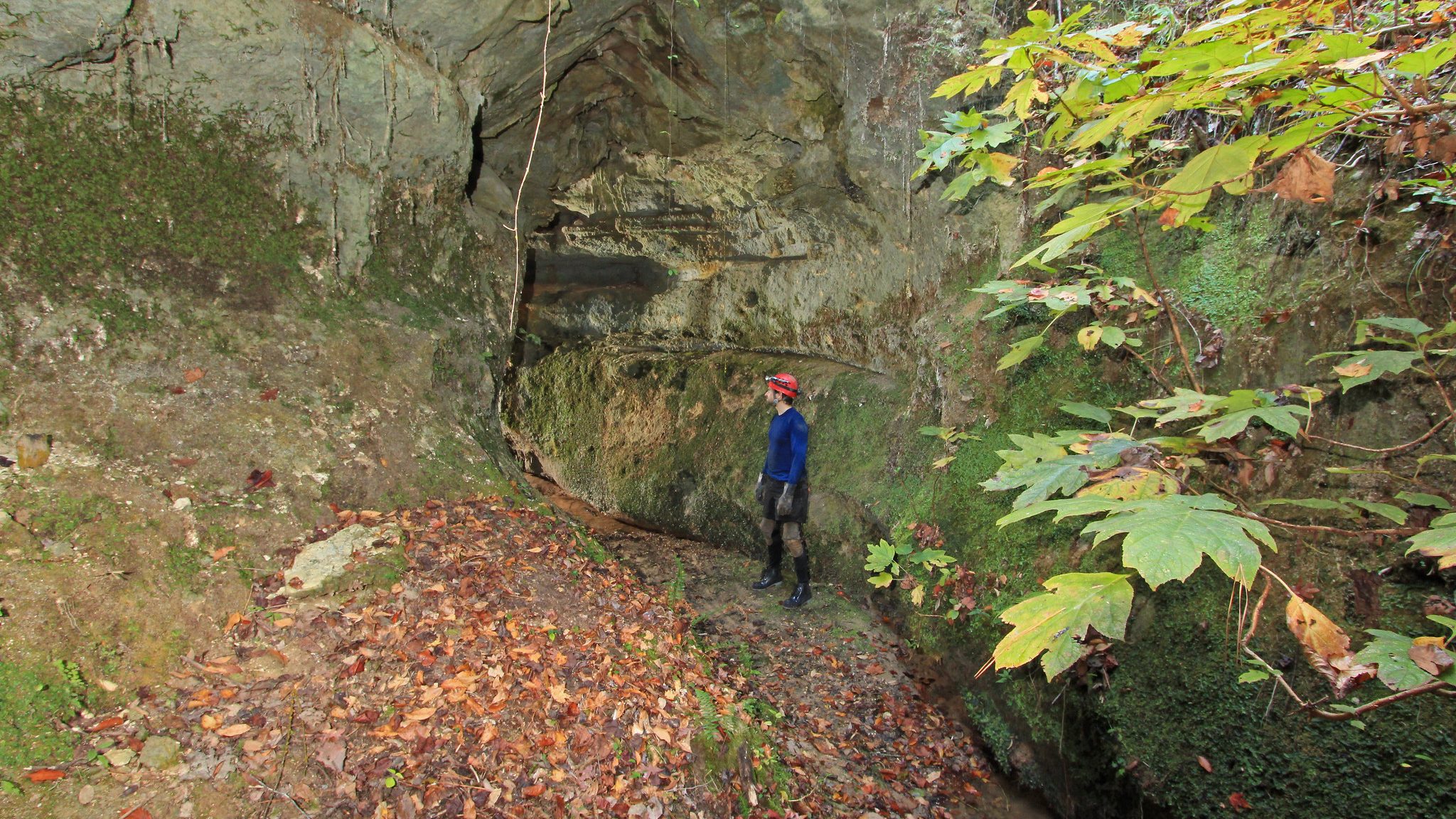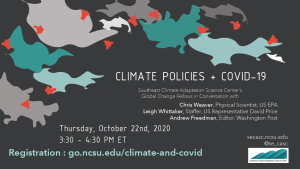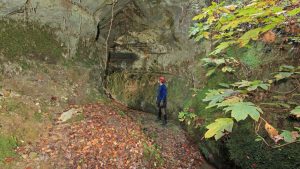October 2020 Newsletter

October 2020 Newsletter
Welcome to the Southeast Climate Adaptation Science Center’s October 2020 Newsletter.
For news and upcoming events related to the Southeast Climate Adaptation Science Center,
subscribe to our monthly newsletter.
SE CASC News | Resources | Publications | Tribal News | Partner News | Webinars | Events | Opportunities

Southeast Climate Adaptation Science Center News
 Coastal Mangroves in a Warming Climate: Register for this SE CASC Science Seminar on Oct. 20, 11 am ET, presented by SE CASC Researcher, Mike Osland.
Coastal Mangroves in a Warming Climate: Register for this SE CASC Science Seminar on Oct. 20, 11 am ET, presented by SE CASC Researcher, Mike Osland.
Climate Policies and COVID-19: Register for this Global Change Seminar on Oct. 22, 3:30 pm ET, organized by SE CASC Global Change Fellows and featuring panelists from science policy, legislative, and science reporting fields.
The SE CASC team is growing! We are excited to welcome and introduce our new staff members:
- USGS Director, Katherine Smith
- Data Steward, Carol Morel
- BIA Pathways Intern, Mikayla Kerron
New SE CASC science project is underway, addressing our Impacts science theme: Science to Inform the Management of Mangrove Ecosystems Undergoing Sea Level Rise at Ding Darling National Wildlife Refuge, Sanibel Island, Florida.
SE CASC staff participated and presented in the 2020 National Tribal and Indigenous Climate Conference. Learn more.
Global Change Fellow, Kathryn Jewell, and Consortium PI, John Kupfer, are presenting at the SECAS Symposium: Recent Progress – Future Directions, part of Annual Conference of Southeastern Association of Fish & Wildlife Agencies, Oct. 27. Learn more.
Researcher Spotlights: Global Change Fellow, Megan Johnson, and Research Ecologist, Mitch Eaton.
Former Global Change Fellows, Sudarshana Mukhopadhyay, Andre L. Taylor, and Lise Montefiore, will participate in Auburn University Geoscience Colloquium. Learn more.
Mark your calendars: Next Global Change Seminar, Nov. 5, 3:30pm, on topic Disaster Recovery During a Global Pandemic.
Next SE CASC Science Seminar, Nov. 17, 11am SE CASC Researcher, Jacob Lafontaine, on Assessment of Water Availability and Streamflow Characteristics in the Southeastern U.S. for Current and Future Climatic and Landscape Conditions.
Post by 2018-2019 Global Change Fellow, Tina Mozelewski: Getting The Most Bang For Your Conservation Buck.
Spring 2018 Global Change Fellow, Sudarshana Mukhopadhyay, 2018-2019 Fellow, Chandramauli Awasthi, and Faculty Affiliate, Sankar Arumugam published Developing the hydrological dependency structure between streamgage and reservoir networks.
2016-17 Global Change Fellow, Paul Taillie, and Faculty Affiliates, Jelena Vuckomanovic and Ross Meentemeyer, are co-authors to Aboveground carbon loss associated with the spread of ghost forests as sea levels rise. Learn more.
2012-2013 Global Change Fellow, Adrienne Wootten describes her process of recording a Climate Downscaling presentation for the 2020 Climate Adaptation and Immersion meeting in this ECCN blog.
Climate Conscious NC series has wrapped. Listen to these presentations on YouTube or Spotify.
2018-2019 Global Change Fellow, Deja Perkins is co-hosting a new series: Exploring Citizen Science at NCSU.
As part of their Global Change Fellows experience, the 2019-2020 cohort developed creative videos describing their research.
Interested in nominating a student for the 2021-2022 cohort of Global Change Fellows? We will begin accepting nominations in mid-December and are especially interested to increase incoming PhD applicants. Check out these Frequently Asked Questions about the program.
Post by Faculty Affiliate, K.C. Busch: Lessons for Educators on Teaching Climate Change.
Conservation Corridor: Species in similar habitats still face unique climate and land-use threats.
Resources
FEATURED RESOURCE
 Our Changing Planet: The U.S. Global Change Research Program for Fiscal Year 2020.
Our Changing Planet: The U.S. Global Change Research Program for Fiscal Year 2020.
The USGCRP, composed of researchers spanning 13 federal agencies, prepared this report for Congress to detail the progress and recent achievements that these entities have made in advancing scientific efforts related to global change. This publication highlights various research projects that span both human-induced and natural processes that affect and interact with the Earth system, including the atmosphere, oceans, land, water, ecosystems, and people. Learn more.
Hurricane Preparation and Recovery Commodity Guides. The US Department of Agriculture has created guidance to help economically important industries in the Southeastern United States prepare for and recover from hurricane events. Learn more.
Global Biodiversity Outlook Report 5. This report provides a global summary of progress towards the Aichi Biodiversity Targets, based on a range of indicators outlined in the IPBES Global Assessment on Biodiversity and Ecosystem Services. Learn more.
SCGIS – A Spatial Planning Tool for Biodiversity Conservation under Climate Change webinar. In this webinar, Andrew Shirk (Research Scientist at Climate Impacts Group) discusses the Society for Conservation GIS Spatial Planning Tool which monitors regional habitat conditions, projects future habitat conditions, and prioritizes the landscape for conservation. Watch here.
First Street Foundation. This non-profit research group was founded by a group of scientists working to quantify the risks of flooding in the United States. Through their Flood Factor model, past, present, and future flood risks are available for every home and property in the contiguous U.S. Learn more.
Alaska Voices Podcast Launch. The Alaska Voices project which began as a collaboration between the Alaska Climate Adaptation Science Center and the nation-wide StoryCorps project recently launched a new podcast that aims to bring unique stories of climate science and climate change to new audiences. Learn more.
In the Media
The climate science behind this year’s wildfires and powerful storms. CBS News
Report Links Racial, Environmental Justice. Coastal Review Online
A New Way of Thinking About Climate Change – Introducing Atlantic Planet. The Atlantic
Why Hurricane Sally is moving so slowly—and delivering epic rainfall. National Geographic
New Climate Maps Show a Transformed United States. ProPublica
Notable Publications
Predictability of Extreme Sea Level Variations Along the U.S. Coastline. Link to article.
Key Points from journal article summary:
- Traditional and tailored climate indices are used to assess the predictability of extreme sea level variations
- Models developed in the frequency domain outperform traditional models in predicting extreme sea level variations
- Initialized decadal climate model simulations are used to assess the predictability of extreme sea level variations at decadal time scales.
Future of the human climate niche. For thousands of years, humans have existed in a relatively narrow division of climates that exist on Earth, characterized by mean annual temperatures of around ∼13°C. Authors argue that current agricultural production is limited by this temperature constraint of ∼11°C to 15°C. Assuming a business-as-usual climate scenario, researchers project that the geographic location of this temperature niche will shift more over the next 50 years than it has in the last 6000 years. Because much of this temperature transformation is expected in poorer areas of the world, authors suggest that enhancing human development should be prioritized in these regions, in tandem with climate mitigation efforts. Link to article.
Global priority areas for ecosystem restoration. Ecosystem restoration is a crucial element to restoring biodiversity and stabilizing Earth’s climate. This study recognizes the importance of ecosystem restoration in carbon sequestration and provides a multicriteria approach that identifies priority areas for restoration across all terrestrial biomes. Authors note the importance of including several biomes in achieving multiple benefits, which includes the reduction in potential extinction from habitat loss. In addition, by prioritizing both biodiversity and climate-mitigation scenarios, 95% of the maximum biodiversity benefit and 89% of the maximum climate change mitigation benefits could be achieved. Link to article.
Keeping up with the times: Mapping range-wide habitat suitability for endangered species in a changing environment. Satellite remote sensing is a useful tool in obtaining environmental information to inform conservation planning. However, accessing, processing, and analyzing such extensive spatial and temporal data hinders large-scale adoption of this technique. This study obtained remote sensing data for the endangered Yuma Ridgway’s rail bird that lives within the Lower Colorado River Basin, USA. Researchers processed the spatial data using the free and easily accessible Google Earth Engine and generated habitat suitability maps across the range of the species. Additionally, they provide a framework for others to build habitat suitability models across broad habitat areas to aid biologists in gathering information needed to improve conservation and restoration outcomes. Link to article.
Hydrologic Signals and Surprises in U.S. Streamflow Records During Urbanization. This research built on previous work spatially comparing watersheds with differing degrees of urban cover to investigate how low and high flows, and all flows across the flow duration curve, change over time during urbanization across a range of U.S. watersheds. Authors used housing density metrics with increases of >40% and impervious surface cover to identify periods of rapid urbanization; 53 subsets of USGS gages measuring daily streamflow from urbanizing areas were paired with rural reference watersheds, to represent climatic trends that would also be affecting streamflow change in urbanizing regions. Key conclusions were: a) During urbanization, half of 53 urbanizing gages had increasing low streamflow; b) The largest urbanizing flow trends were in watersheds with changes in water supply and wastewater infrastructure, or in arid watersheds; c) Urbanization leads to widely varying and substantial changes in streamflow across the flow duration curve. Link to article.

Tribal News
Visit USET Climate Change Headlines for updates on information regarding climate science events, funding opportunities, best practices, and highlights from across the USET region.
Bridgewater State University, Plymouth 400 and the Wampanoag Advisory Council are sponsoring an Indigenous History Conference. The conference is free of charge and includes Nine Virtual Sessions which will take place between Oct. 3 thru Nov. 22, 2020. Learn more.
The National Tribal Leadership Climate Change Summit will be held from October 2020 to May 2021. The first session, Tribal Climate Change Policy, took place on October 1 at 1pm ET. Learn more.
The Northwest and Southwest Climate Adaptation Science Centers are accepting Statements of Interest for Tribal climate adaptation research projects. Statements can be submitted here until December 17.
The Seminole Tribe of Florida is seeking a Climate Resiliency Officer to work in the Heritage and Environmental Resources Office. Apply here.

Regional Partner News
Southeast Conservation Adaptation Strategy: Southeast Blueprint 2020 now officially complete
NOAA National Center for Environmental Information: Global Climate Report – September 2020
Association of Fish & Wildlife Agencies: AFWA Recommends 38 Priority Projects for the 2021 Multistate Conservation Grant Cycle
National Integrated Drought Information System Program: Ecological Drought Enters Unfamiliar Territory
South Atlantic Landscape Conservation Cooperative: Monitoring changes in wetland elevation on Southeast National Wildlife Refuges
Caribbean Climate Hub: Farm Planning Tool
National Fish and Wildlife Foundation: NFWF Announces $5.6 Million in Grants to Advance Longleaf Pine Habitat and Support Wildlife in Eight Southeast States

Webinars
Find more upcoming events in our calendar.
Oct. 20 | 10am – 11am | Hurricanes and Extreme Precipitation webinar
Oct. 20 | 11am – 12pm | SE CASC Science Seminar: Refining Tipping Points for Range Expansion of Coastal Mangroves in a Warming Climate
Oct. 20 | 2pm – 3:30pm | The Coastal Southeast: Rising and Hazardous Waters (Session One)
Oct. 20 | 3pm – 4pm | GOMA Virtual Tools Cafe – Databases and Decision Support
Oct. 21 | 12pm – 1pm | Two approaches for mitigating global climate change: Solar radiation management and greenhouse gas emissions reduction
Oct. 22 | 2pm – 3:30pm | The Coastal Southeast: Rising and Hazardous Waters (Session Two)
Oct. 22 | 3:30pm – 4:30pm | Global Change Seminar: Climate Policies and COVID-19
Oct. 23 | 8:30am – 9:30am | Sponge City and Nature Based Solutions
Oct. 26 | 1pm – 2pm | Inclusivity in Cooperative Extension Programming, With an Emphasis on Natural Resources and Climate Change
Oct. 27 | 3:30 – 4:30pm | NCA5 Webinar for Social Scientists
Oct. 29 | 9:30am – 10:30am | NOAA Eastern Region Climate Services: Drought Projects for the NE DEWS
Oct. 29 | 3:30pm – 4:30pm | Geospatial Forum with Dr. Jennifer Richmond-Bryant
Nov. 5 | 9am – 10am | Climate and Conservation Coffee
Nov. 5 | 1pm – 2:30pm | Drought and Wildfires webinar
Nov. 5 | 3:30pm – 4:45pm | Global Change Seminar: Disaster Recovery During a Global Pandemic
Nov. 9 | 4:30pm – 5:45pm | Auburn NRT Environmental Justice Panel
Nov. 10 | 10am – 11am | Southeast Climate Monthly Webinar
Nov. 10 | 3pm – 4pm | GOMA Virtual Tools Cafe – Watersheds, Flooding, and Basins (Oh My!)
Nov. 12 | 3pm – 4pm | Climate Adaptation Science to Support Amphibian Conservation in the U.S. Caribbean
Nov. 12 | 3:30pm – 4:30pm | Geospatial Forum with Dr. Dustin Duncan
Nov. 17 | 11am – 12pm | SE CASC Science Seminar: Assessment of Water Availability and Streamflow Characteristics in the Southeastern U.S. for Current and Future Climatic and Landscape Conditions

Upcoming Events
Find more upcoming events in our calendar.
Oct. 13-15 | 2020 Women in Conservation Leadership Virtual Summit | Virtual
Oct. 25-27 | SEAFWA Annual Conference | Virtual
Oct. 27-28 | ASAP Virtual Network Meeting| Virtual
Oct. 23 | Rutgers Climate Symposium | Virtual
Oct. 7-28 | The Resilient Nation Partnership Network Annual Forum | Virtual

Opportunities
Student Announcements
Early Career Climate Network has a new website! Learn more.
American Institute of Physics Congressional Fellowship Program. Apply here by December 15.
University of Florida School of Forest Resources and Conservation has a PhD opportunity in Bayesian statistics and decision support tools applied to Ecology. Apply here by December 2020.
Colorado State University is accepting applications for a graduate student research assistantship in the Department of Ecosystem Science and Sustainability. More information.
Hiring Announcements
Department of Wildlife, Fisheries & Aquaculture at Mississippi State University is seeking a GIS Coordinator to support Southeast Conservation Blueprint. Apply here.
Climate and Environmental Remote Sensing group at Vienna University of Technology is accepting applications for a Data Scientist in Climate and Environmental Remote Sensing. Apply here
USGS is seeking a Natural Resource Economist for improving invasive species management. Apply here by January 4, 2021.
Research Grants
NOAA’s Effects of Sea Level Rise Grant application period is now open. Apply here by January 7.
The Flood Funding Finder website presents a variety of federal grants for small communities to help prioritize opportunities to fund flood resilience. More information.
Miscellaneous
NASA, on behalf of the U.S. Global Change Research Program, is accepting nominations for authors and scientific/technical inputs for the Fifth National Climate Assessment. Submit nominations here by November 14. More information.
- Categories:


